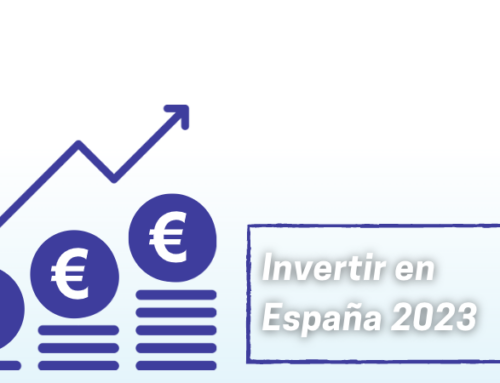
Are you thinking about what to invest in Spain in 2022? The truth is that after having been immersed in a critical economic situation, the real estate market reflects a favorable scenario. During the last ten years of recovery, foreign demand has been one of the pillars that have allowed the growth of the sector. In 2015 a new expansionary cycle of the real estate market began that was characterized by geographical heterogeneity, with Madrid, Barcelona, Balearic Islands, Santa Cruz de Tenerife, and Las Palmas being the leaders.
As a result of the recovery at different speeds of the other provinces, prices between regions also accentuated a gap between the more expensive localities (previously mentioned) and the follower localities. However, this gap has not meant a decrease in the market. According to the latest study by the National Institute of Statistics, in 2021, property sales in Spain increased by 34.6% compared to 2020, a logical increase after the “stoppage” caused by the pandemic.
With the rise of the real estate market, foreign investors, both residents in Spain and non-residents, are increasingly betting on Spain as an investment destination, with the Costa del Sol being one of the preferred locations. In 2021, a new all-time high was reached in foreign purchases, totaling more than 110,000 homes.
Tips for British Investors in Spain
Following concerns about Brexit, it appears that UK investors know what to invest in Spain and have positioned themselves as the largest real estate buyers in the Spanish market, bringing together 15% of all acquisitions. Within these purchases, most of the concentration is located on the Mediterranean coast and in the Canary Islands.
A curious fact is that non-residents are the ones who buy the most expensive properties at an average price of 2,094 euros per square meter. In comparison, investors already residents buy properties for an average price of 1,600 euros per square meter (Page, 2022).
Advantages and Consequences of the Golden Visa on Real Estate Investments in Spain
For foreign investors, the Golden Visa has become one of the best options for obtaining residence in Spain, allowing, in addition, the development of businesses in Spanish territory.
Spain is becoming a European power in Golden Visas. Since its implementation in 2013, it has attracted, above all, a large number of American and Chinese investors. Today, more than 200,000 people have benefited from the program, generating more than 21.8 billion euros.

How to Get a Golden Visa in Spain?
One of the easiest ways to obtain legal residence in Spain is through the Golden Visa because there are not many requirements for the entrepreneur:
- Not to live in a member state of the European Union.
- Invest in a property or real estate of 500,000 euros onwards.
- No criminal record.
- In case of wanting to migrate with relatives, determine the relationship between the applicants.
The residence permit through the Golden Visa entitles those investors not to be obliged to remain in Spain for the renewal of the visa; it is only required for its renewal to maintain the investment. It is essential to clarify that the property purchase must be free of any loans or mortgages.
What Taxes Are Associated with Purchasing and Selling Real Estate in Spain?
Concerning the purchase and sale of real estate, it is crucial to assess the real estate purchase and sale taxes to know whether or not the transaction is profitable.
-
- Value-added tax (IVA): VAT is the first of the taxes on the purchase and sale of real estate. The buyer of the house must pay this tax. The general VAT applies to new dwellings over 10% except for the Canary Islands, which involves the IGIC of 7% and 4% in the case of public houses.
- Property Transfer Tax (ITP): If the dwelling is second-hand and the seller is a private individual, the transaction is no longer subject to VAT but to ITP.
- Tax on documented legal acts (AJD): Buyers must pay the AJD of 0.5% on the declared value or the type of tax of the autonomous community in which the property is located.
- Personal Income Tax (IRPF): If the seller is a natural person, the capital gain or loss must be included in the tax return.
- Tax on the increase in the value of urban land (IIVTNU): This tax is paid by the seller of the property and taxes the increase in the value of the land as a result of the transfer. That is the revaluation of the property during the years that elapsed since the last transmission was taxed.
Suppose you are interested in acquiring a property in Spain. In that case, we advise you throughout our services of investment and company incorporation in Spain.
External Links
Page, D. (19 de abril de 2022). Los extranjeros compran más viviendas en España que nunca con 111.700 en un año. Obtenido de EPE: https://www.epe.es/es/economia/20220419/extranjeros-compran-viviendas-espana-13534776
https://www.carrilloasesores.com/post/impuestos-en-la-compraventa-de-inmuebles#:~:text=Los%20compradores%20deben%20pagar%20el,del%20importe%20de%20la%20compraventa.




